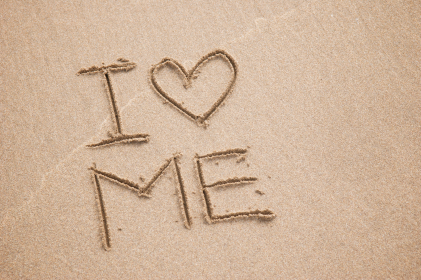Take Care Of You, Take Care Of Relationship
By Susan Greene MA, MFTI
Guest writer for the Love-Life Learning Center
When it comes to the quality of relationships you have with someone you are in love with, the quality of the relationship you have with yourself cannot be ignored.
- Betrayals
- Addictions
- Emotional, Verbal, Physical, or Financial Abuse
These issues are common to couples from all walks of life, same-sex and opposite sex couples, married couples and non-married, young couples and old couples, couples with traditional lifestyles and couples with alternative lifestyles, couples with children and couples without.
If there’s one axiom that has held true it’s that we won’t know how to love others if we don’t first learn how to love ourselves. The idea of loving yourself can be very confusing, and it often gets mixed-up with the idea of being self-absorbed or narcissistic. But loving oneself, or others, is about actions and intention and attitude. Love is not just a feeling. Therefore, learning to love yourself is about actions, not feelings. Loving yourself is about developing an ability to nurture and take good care of yourself in the world. If you don’t know how to do this, it will be difficult to provide this to another, because how we relate to ourselves will be reflected in how we relate to others.
Take a look at the list of common challenges couples face, and make an honest assessment of how you treat yourself and what kind of relationship you have with yourself.
Lies and Betrayal
Everywhere you look there are stories of lies and betrayal in relationships.
But have you ever wondered about the ways in which you betray or abandon yourself? For example, how many times have you turned your back or looked the other way while knowing in your gut something is wrong in your relationship? How many times has your inside voice urged you to speak with your partner, or take a closer look at what is happening, or to call a counselor if need be to help you sort things out? And how many times has that inside voice been ignored? How many times have you seen red flags in the early part of courtship but chose not to act in your own best interest? How many times have you shared with friends that you “don’t deserve abuse” but then stayed and tolerated abuse or destructive behaviors from a partner?
This doesn’t mean you will like being betrayed, it means you may have a comfort level with the experience of betrayal. If this is what you are used to doing to yourself, doesn’t it make sense that this is the kind of energy you might draw or tolerate from others in relationship?
Addictions: Are you currently involved with a partner who has an active addiction or habitual behavior that causes serious problems for the relationship? Are you hanging-in there and hoping they will eventually give up the destructive behavior? Are you afraid to set clear boundaries with your loved-one because you fear that if you do, you might rock the boat or even loose them? Do you spend an enormous amount of time trying to fix, rescue or solve the mystery of your partner’s destructive behaviors? If this sounds familiar to you, the addiction you need to examine may be your own. A co-dependent arrangement where you lose yourself through extreme focus or caregiving of another at the expense of yourself is not healthy for either you or your loved-one.
Abuse
Romantic relationships can be breeding grounds for all sorts of abuse because of the investment and vulnerability that is shared between two. There is a lot at stake, and it can be incredibly shocking and disorientating to realize that your relationship is abusive. Abuse can show up in many ways, verbal, emotional, physical, or economic. Here’s a dark secret about abuse in relationships that is rarely talked about: If you are in an abusive relationship, often, over time, it become a two- way –street. Also, many of us complain bitterly about the mistreatment we suffer from others, but ignore completely how badly we treat ourselves on a daily basis. Ask yourself a few simple questions as a start, and do not beat yourself up no matter what the answer! Be curious and have COMPASSION for yourself as you go through this list.
- Do you make an effort to eat right, get enough sleep, exercise, see the doctor for regular check-ups and generally make your health a priority?
- Are you harsh with your self-talk? When you make a mistake, do you beret yourself or call yourself disparaging or degrading names?
- How about the demands you place on yourself? Do you expect yourself to be superman/superwoman and then beat yourself up if you ever fall short of the mark? Are you your own worst critic?
- Do you make your financial security a priority? Do you plan for your retirement?
- Do you make sure you have a healthy balance of work, play, and rest?
- Do you give yourself permission to grieve or feel sad over a loss?
- Can you say no?
Many of us engage in relationships not really knowing how to take care of ourselves and assume that embarking on a romantic relationship with the right person will magically take care of all our needs. It’s sexy and romantic to think this way, and our current culture certainly sends the message that the right romance will bring us blissful joy and fulfillment. It’s not nearly as sexy or romantic to think about our own self-care, but the truth is this; as important as finding the right person is, it is even more important that you are working to establish a healthy relationship with YOURSELF. Learning to make a healthy and caring relationship with yourself a priority, will greatly enhance the likelihood of attracting and maintaining a healthy and caring relationship with someone else.
 Susan Greene MA, MFTI is a psychotherapist in Lake County, CA working with adults and children who have experienced domestic violence and sexual assault.
Susan Greene MA, MFTI is a psychotherapist in Lake County, CA working with adults and children who have experienced domestic violence and sexual assault.

